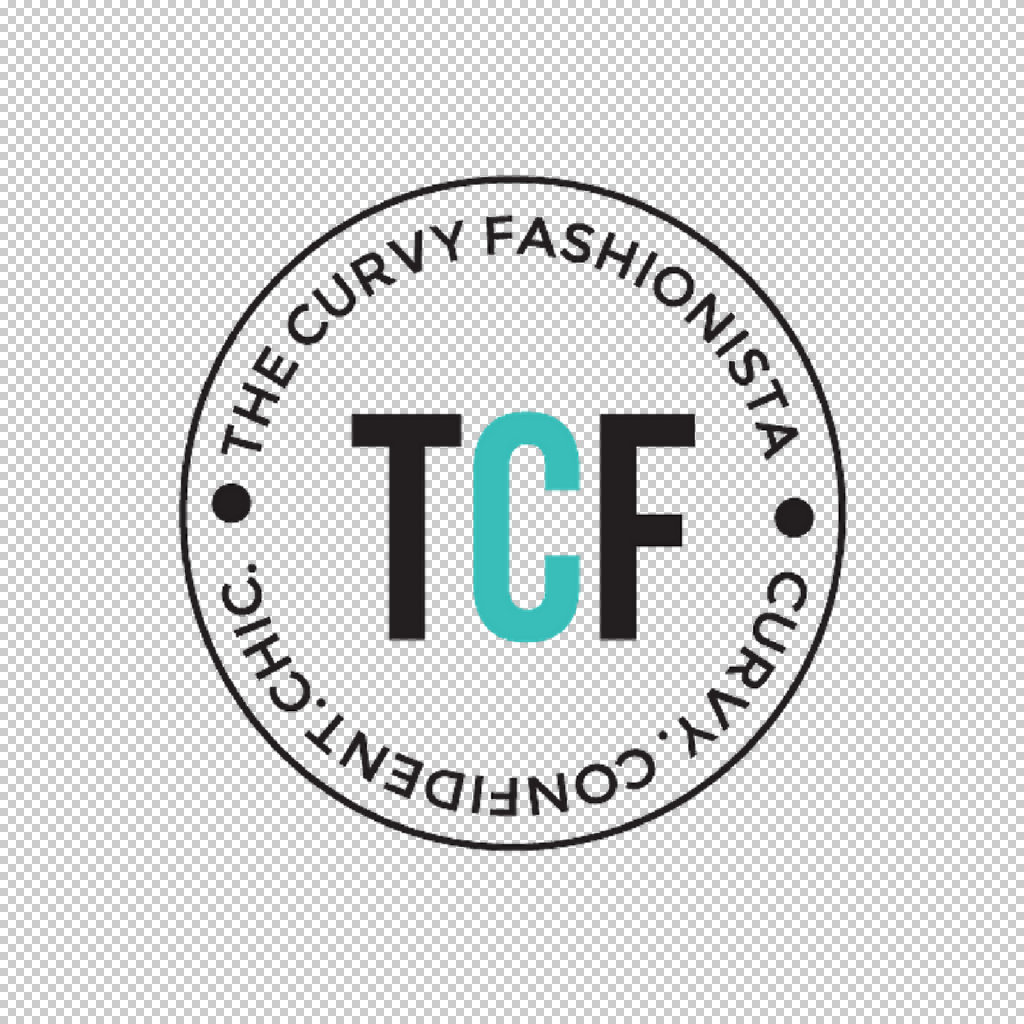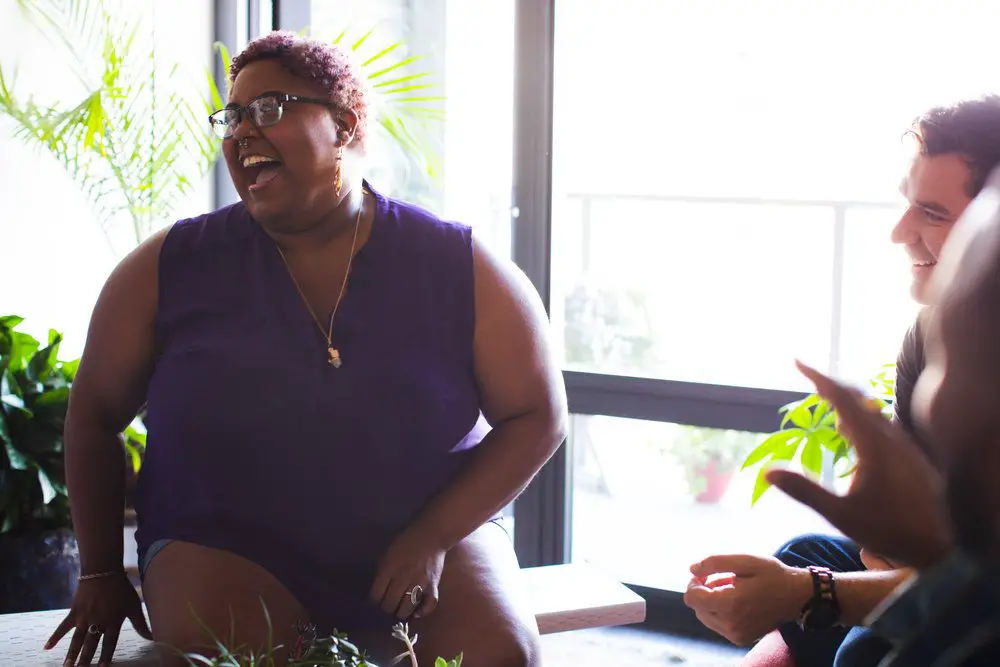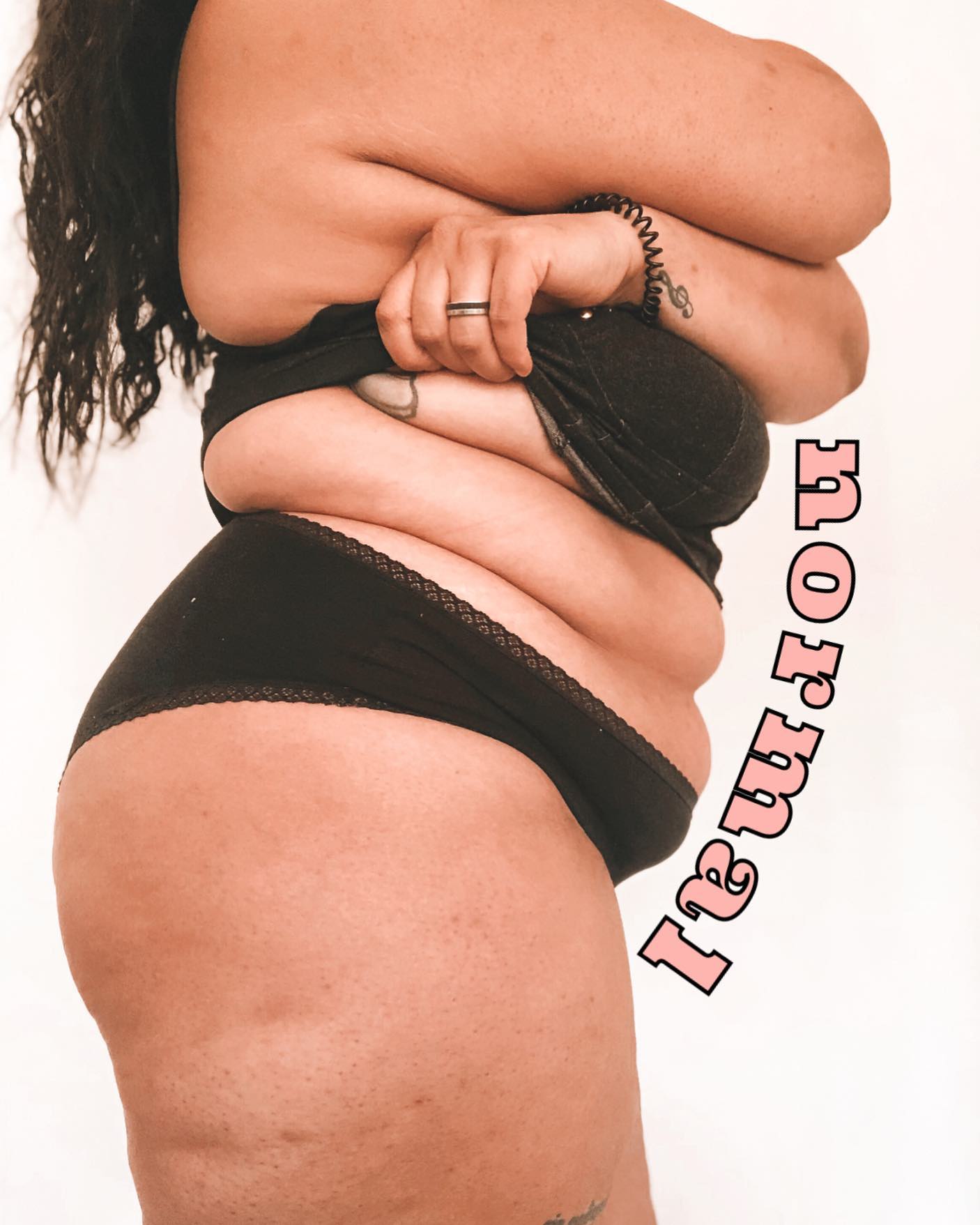Ah, Thanksgiving. The time of the year when most Americans force themselves to be in a room with people they don’t always get along with. They pretend that everything they were taught in Kindergarten about the relationship between pilgrims and Native Americans were factual. It’s also a time when many are surrounded by an overwhelming amount of comfort food.
This is something that can be extremely triggering for anyone with a history of disordered eating. This holiday easily puts a target on the backs of curvy folx with judgemental family members, or family members with a penchant for food and/or body shaming at Thanksgiving.
As someone who grew up in a household consisting of an eternally in-shape father, a perpetually fit sister (who went on to be a bodybuilder), a formerly obese mother who has dedicated her later years to prevent her body from ever “going back” to her former size, navigating Thanksgiving body shaming took years to overcome.
Like many plus size folx, I am innately aware of how people around me observe how I eat.
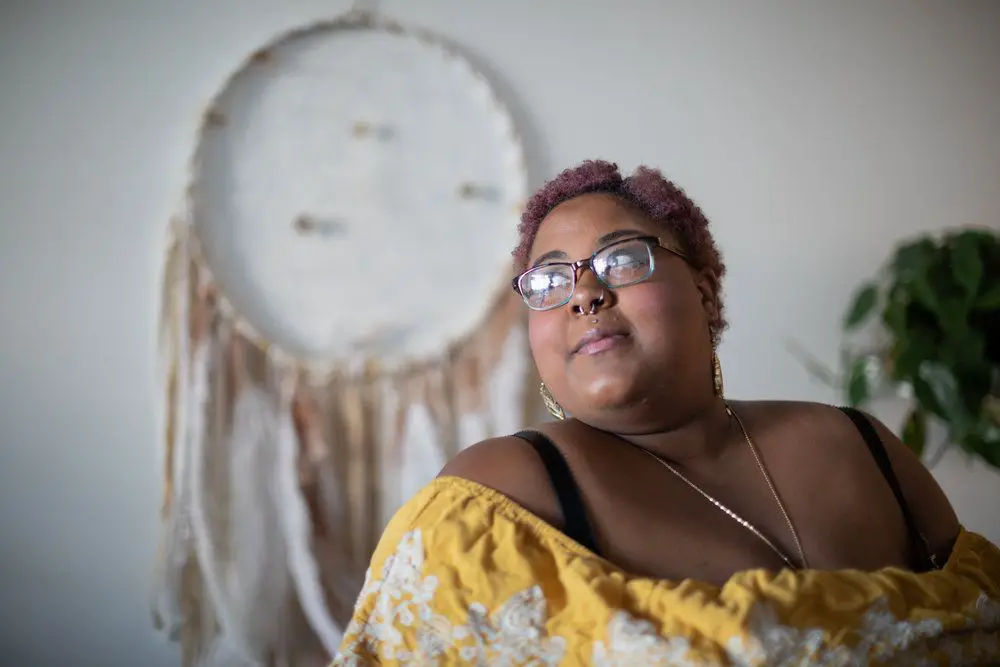
To borrow a quote from Courtney Shane in Jawbreaker, “at some terrifying level they’re associating that greasy pizza with your shiny face.”
With that in mind, when it comes to curvy folx, anything and everything we eat in public is up for speculation and scrutiny as if we are performers on display. Holiday get-togethers like Thanksgiving raise the stakes on this mentality.
But, unlike strangers who may silently judge how much you put in your burrito bowl at Chipotle, family members in the safety of a familiar environment have a tendency to feel a little more emboldened about their opinions.
Never fear, however, as someone who has endured nearly 30 micro and macro aggression filled years of celebratory meal food policing, you’re not alone! There are tips and things to remember to keep you feeling confident and cared for this holiday season.
Tips on How to Navigate Body Shaming at Thanksgiving
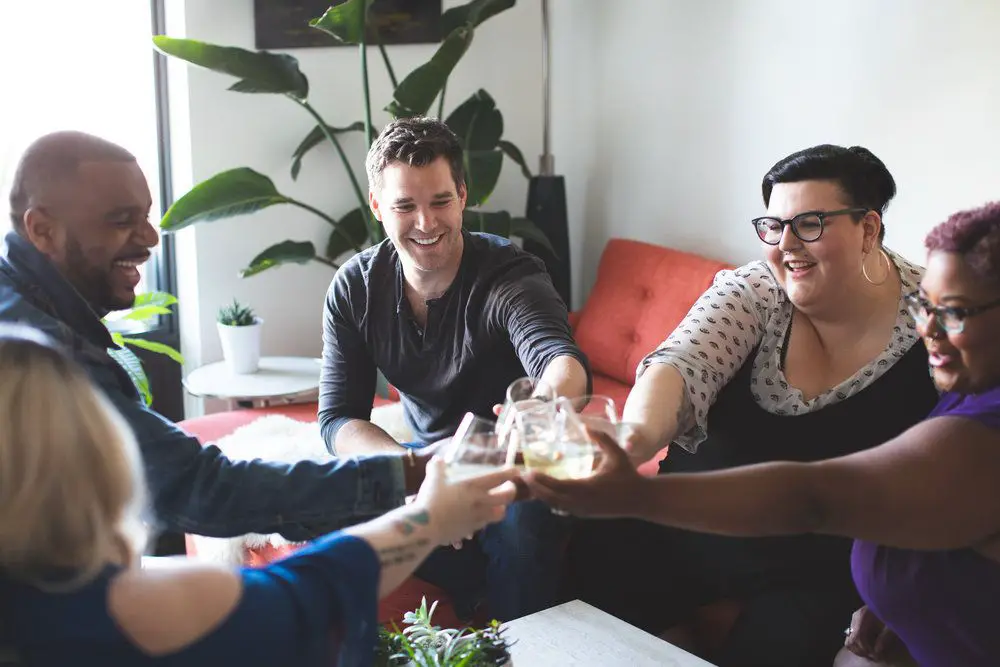
Don’t restrict your eating in preparation for Thanksgiving
Given the abundance of food available at most Thanksgiving dinners (not to mention Friendsgiving parties!) there’s a pressure to limit our food intake as if to compensate for the binge-eating or indulgence of the holiday.
Calories are not like rollover minutes on a cell phone plan and you are not doing your body any favors by starving yourself in preparation for Thanksgiving.
Please be kind to your body and mind, by eating as you normally would in the days leading up to the feast.
Check in with how your body responds to the food you eat
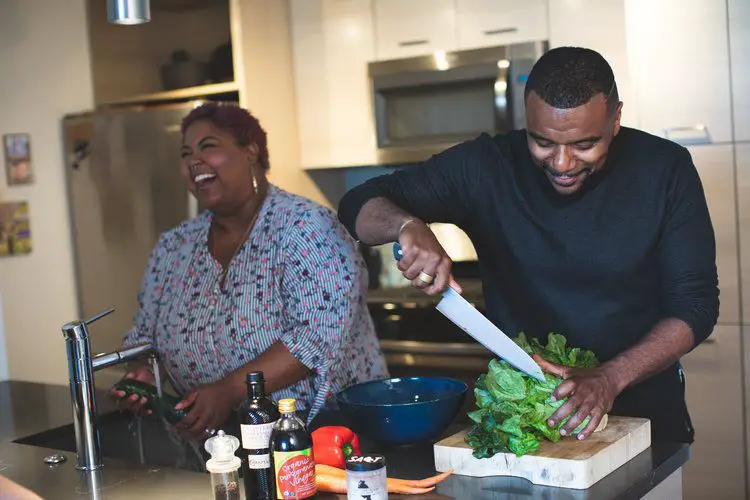
Despite the fact that you only see Aunt Karen once a year, this does not mean you’re obligated to eat her famous-in-all-the-worst-ways triple buttered creamed corn casserole. Eat what you want to eat, and don’t feel like a bad person if you have to leave something on the plate.
Check in with yourself.
Let your body respond to food, and try not to race to get it all down. Analyze how your body is reacting to the things you’re giving it, and this will also help with the dreaded after-meal fatigue.
There’s no shame in delighting your appetite, but remember to let your whole body be a part of the conversation, not just your taste buds.
If it’s safe to do so, you don’t have to ignore or tolerate body/food shamers
First things first, please recognize whether or not you are in a safe environment for potential conflict. Because trauma-informed practices can help keep us safe.
If you are not at risk for violence or other unsafe results, you are under no obligation to sit idly by and let people make comments about your body or your eating habits.
I wish this was something I’d learned for myself earlier, because I could have saved myself a lot of mental anguish over “do you really need another plate?” comments from concern-shaming relatives.
There are a few ways to navigate body shaming at Thanksgiving:
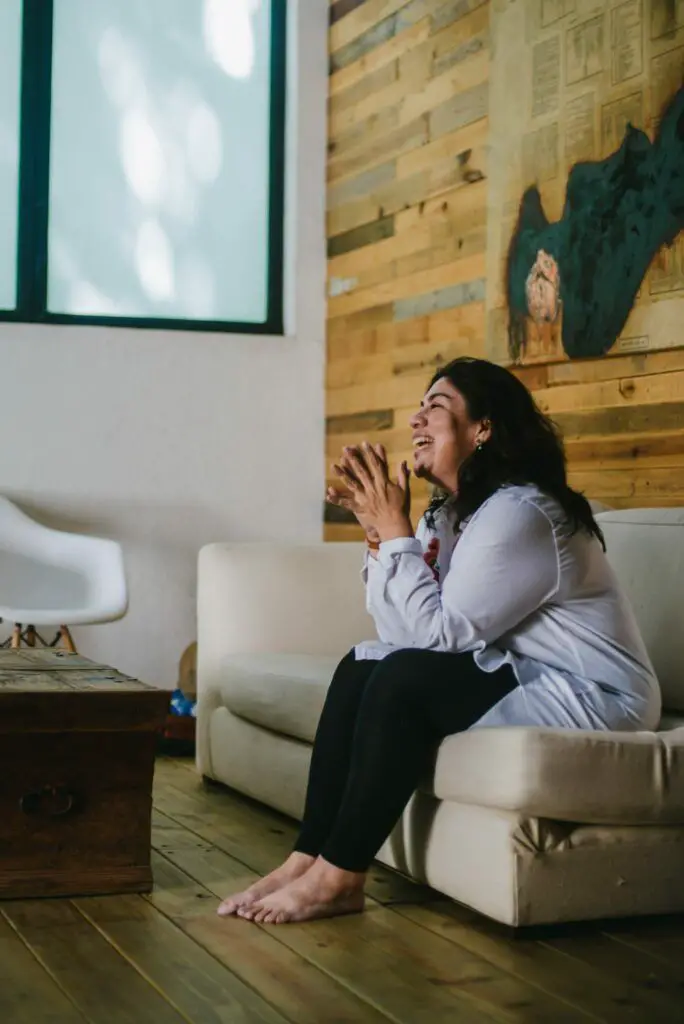
- No-sell the insult and redirect the conversation. A simple “Oh, by the way, tell me how your vacation went?” can diffuse a situation and change the subject.
- Firmly stand your ground. If someone says something judgemental and rude, call them out. “Hey, it’s really none of your concern whether I eat another plate or five.”
- Educate them. Emotional labor isn’t fun for anyone, nor is it required, but sometimes a personal connection between two people can be impactful in enacting change. “Aunt Karen, I need you to understand that your comments are extremely hurtful and perpetuate a really dangerous rhetoric. Would you like to learn more?”
- Leave. No, seriously. Sometimes the best thing for us is to leave a problematic situation. Whether that’s leaving the room and going somewhere else in the house that makes you feel safe or leaving the location completely, doing what is best for you is always the most important thing you can do.
Remember that you’re not alone
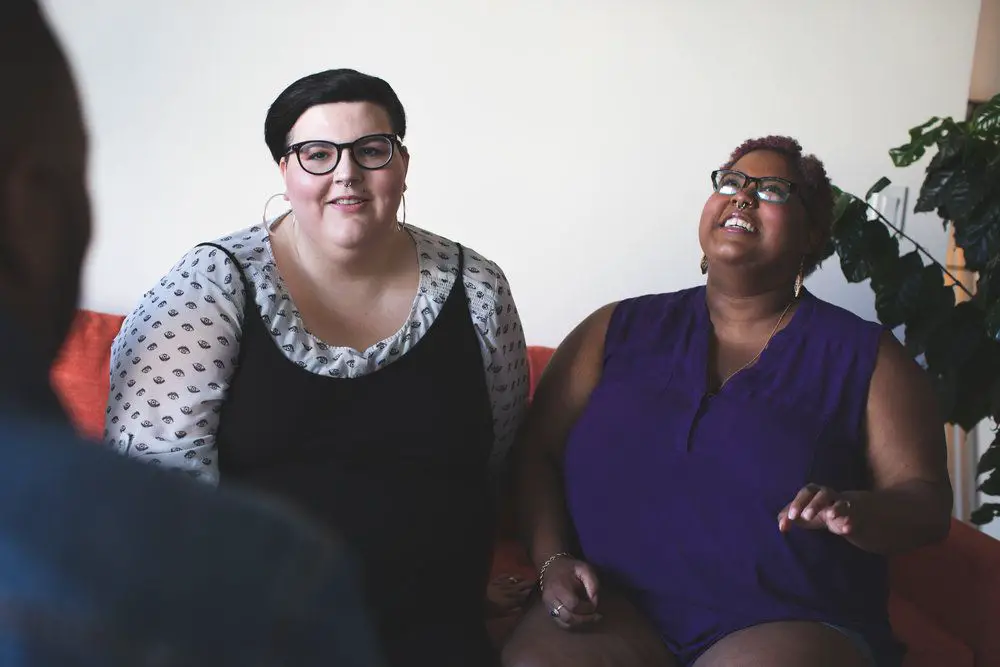
Sure, the internet can sometimes be a cesspool of destructive behavior and gross opinions from awful people. But, it also means that you’ve got a world of people at your fingertips that have endured similar experiences, who will absolutely have your back over the holiday season.
We do.
The holiday season can be tough for a lot of us, but the best way to get through it is to keep yourself supported and reminded that you’re not alone.
You’ve gotten through them before, and you can absolutely get through them again.
What are some affirmations you can tell yourself before the big day?

